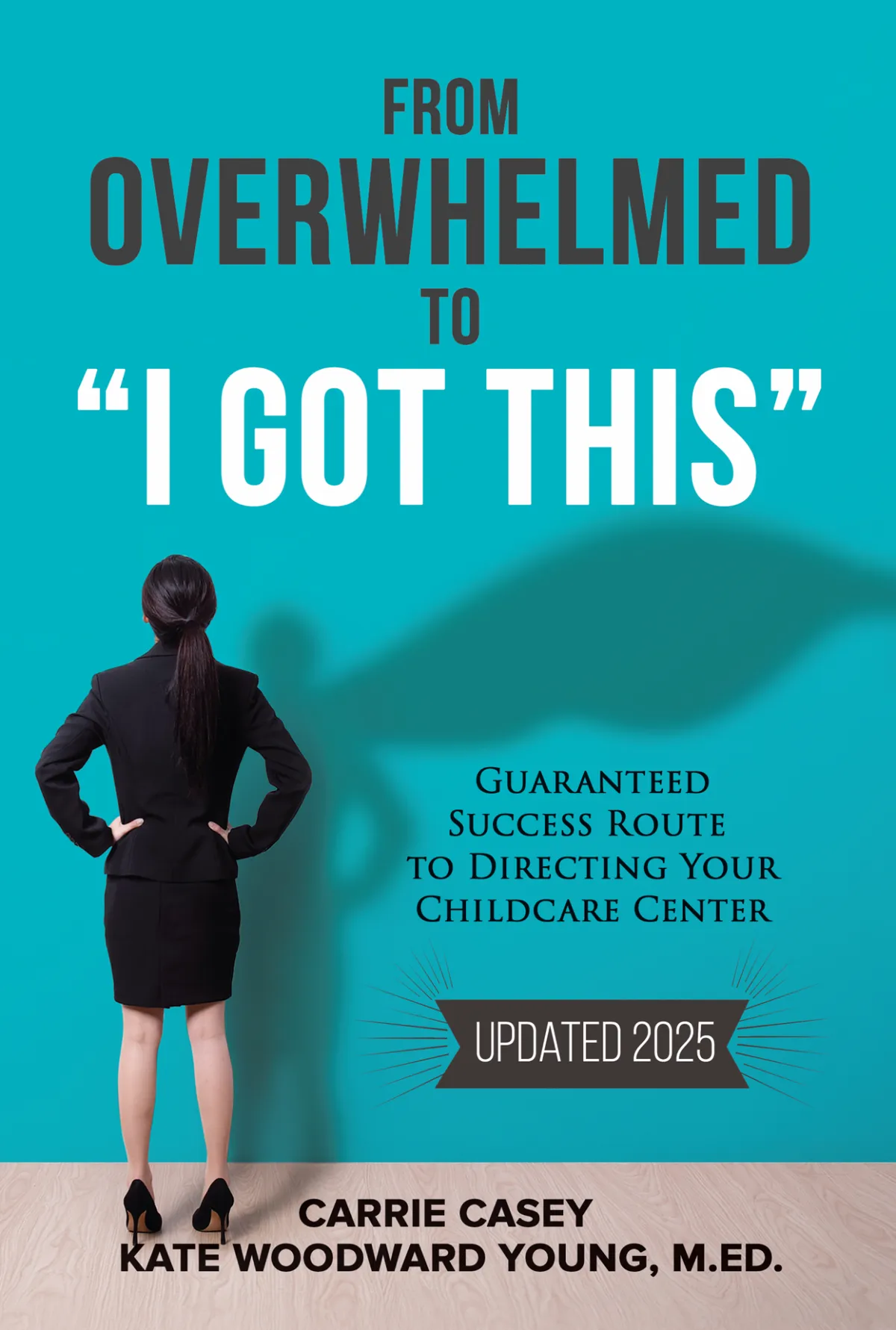
From Overwhelmed To I Got This
From Overwhelmed To I Got This - Carrie Casey and Kate Woodward Young
When Overwhelm Creeps In
You know the feeling. The phone is ringing, staff are asking questions, a parent is waiting at the front desk, and the budget report you meant to finish yesterday is glaring at you from your desk. Being a childcare director can sometimes feel like you’re carrying the weight of the entire program on your shoulders.

But here’s the good news: overwhelm doesn’t have to be permanent. As the book From Overwhelmed to I Got This reminds us, directors don’t have to stay stuck in chaos. Leadership is not about doing everything yourself — it’s about finding clarity, building systems, and leading with confidence.
Building Your Vision
Every great director begins with a vision. Your educational philosophy is more than a document tucked away in a licensing binder — it’s your compass. Do you believe in play-based learning? In nurturing independence? In creating inclusive, welcoming spaces? Whatever your core belief is, it shapes every decision: from the curriculum you choose to the way you talk with parents.
The book challenges leaders to literally write down their philosophy. It’s not about mimicking Montessori, Waldorf, or Reggio — it’s about finding what resonates with you and your community. When your staff and families know your “why,” they gain confidence in your leadership.
Defining Your Role
One of the most common sources of overwhelm comes from blurred roles. Are you trying to be both the visionary owner and the hands-on manager? Are you the one setting tuition rates and also sweeping the snack room floor? Many leaders, like Sarah in the book’s story, try to do it all and end up burning out.
The key is clarity. Owners focus on strategy and growth. Directors focus on daily execution. Both roles are vital, but when you try to play both at once, no one — not even you — knows who’s in charge. The moment you define your role and communicate it clearly to staff, the fog begins to lift.
Professional Presence Matters
Another reminder from From Overwhelmed to I Got This is that how you show up matters. Carrie, one of the authors, shared her story of walking into a national convention only to be dismissed by vendors because she “didn’t look like a director.” It was a tough lesson, but one that reshaped how she presented herself.
Professionalism isn’t about expensive suits. It’s about showing up in a way that signals confidence and authority. Whether that means khakis and a branded polo or a blazer and slacks, your presence sends a message to staff, parents, and community partners: “I’m serious about this work.”
Communication is Everything
Leadership lives and dies in communication. Staff need to know what’s expected of them. Parents need reassurance and transparency. Families considering your center need a clear message about why your program is the right fit.
The book emphasizes active listening, follow-through, and intentionality. It’s not enough to give quick answers — leaders must circle back, document, and create systems of communication. Trust grows when people feel heard and when directors do what they say they will do.
Delegation and Time Management
Monkey management, time management, and the art of delegation — these are survival skills for any director. You cannot lead well if you are constantly putting out fires and micromanaging staff. Delegation is not weakness; it’s leadership. It shows your team you trust them.
And yes, the calendar matters. If everything is urgent, nothing is important. Setting priorities, creating boundaries, and learning to say no frees you up to focus on what really matters: growing your team, serving families, and sustaining your center.
The Path Forward
The journey from overwhelm to confidence isn’t about never feeling stressed again. It’s about building systems, shaping culture, and stepping into your role with clarity.
Here’s the truth: you can do this. You can lead with vision, manage with confidence, and build a program where families and staff thrive. It begins with defining your philosophy, clarifying your role, presenting yourself as a professional, and communicating with purpose.
Because leadership isn’t about perfection. It’s about showing up every day with confidence and saying, “I’ve got this.”
